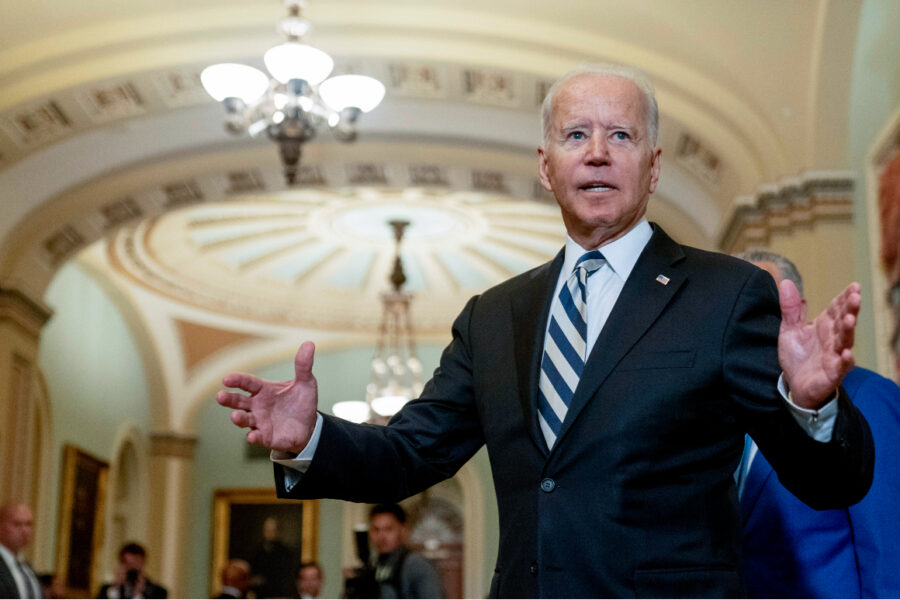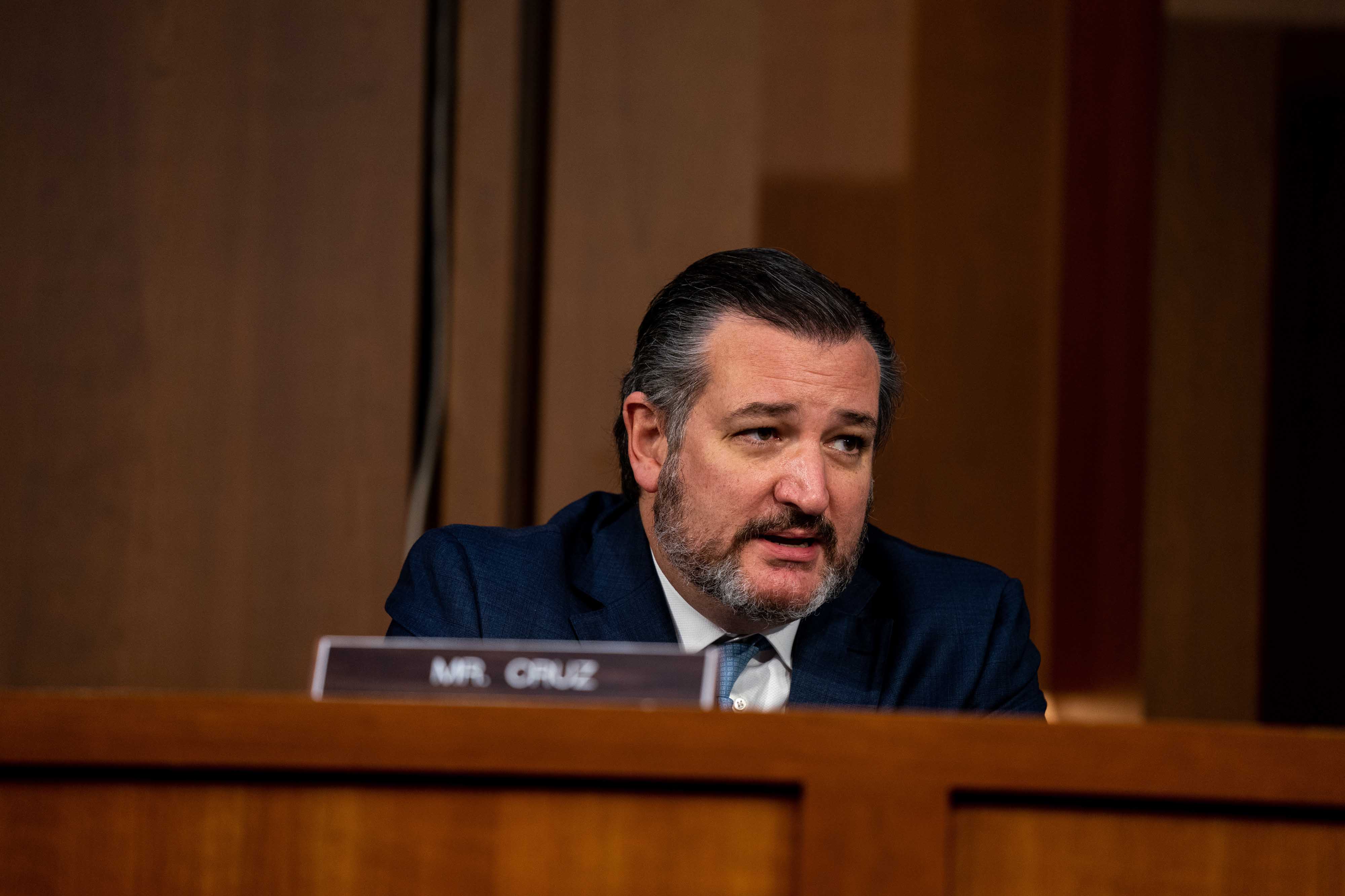Biden’s globe-spanning foreign policy problems awaken his GOP opponents

The torrent of new global challenges burdening President Joe Biden have unified his political opponents — allowing Republicans to find their footing on foreign-policy messaging after four years of Donald Trump-driven chaos on the world stage.
Biden has vast foreign policy experience for a new president but, just six months into his term, he’s dealing with a raft of crises in the Western Hemisphere and Middle East that are sorely testing the still-undefined Biden Doctrine. While he rushes to defend his decision to withdraw U.S. troops from Afghanistan and navigates increasingly hostile Iranian proxy attacks on Americans in Iraq and Syria, he’s suddenly being forced to make quick decisions about the level of U.S. involvement in the unfolding political unrest in neighboring Cuba and Haiti. That’s not to mention the constant tensions with Russia and China.
And Biden’s domestic political opponents, after scrambling to keep up with his volatile predecessor, are taking every opportunity to skewer his approach.
Trump sought to channel growing public wariness of never-ending military conflicts in the Middle East, most notably by initiating discussions about a complete withdrawal of U.S. troops from Afghanistan. The pronouncement irked many Republicans who were caught between their hawkish roots and the emerging isolationist streak from a then-president who promised to reduce U.S. involvement overseas but largely did not deliver. Now that Biden is withdrawing troops, the GOP is rediscovering its traditional footing on global affairs and peppering the president with scorn.
“For my Republican friends, if 10 angels came swearing from above that the president’s decision on Afghanistan was the right one, they would say the angels lied,” Senate Foreign Relations Committee Chair Bob Menendez (D-N.J.) quipped.
Sen. Chris Murphy (D-Conn.) said of the GOP decision to slam Biden for a withdrawal move Trump had embraced: “I just don’t think it should be shocking that Republicans are going to criticize one of the president’s most visible foreign-policy priorities.”
With nearly all Republicans united in opposition to Biden’s Afghanistan decision, the party is getting behind a common message in the Biden era: portraying the president’s overseas posture as weak and motivated by liberal ideology.
“Our reckless rush for the exits is becoming a global embarrassment,” Senate Minority Leader Mitch McConnell said on Tuesday, noting the Taliban’s swift gains in the country that have coincided with the U.S. exit. “[Biden is] ignoring the truth unfolding before our own eyes: Afghanistan is unraveling.”
Many of Biden’s moves are also allowing potential 2024 presidential rivals to carve out a lane of their own on foreign policy. Democrats contend the political maneuvering is making Biden’s job more difficult as he tries to confront diplomatic crises in challenging parts of the world.
“Ted Cruz is making it very hard on him,” Murphy said bluntly of the Texas Republican senator. “Ted Cruz is holding up every single State Department nominee right now, so the Republican strategy is to try to make it as hard as possible for President Biden to manage crises around the world.”

Cruz, who is widely considered a possible candidate in the next presidential cycle, has held up Biden’s nominees to key national-security positions. He says it’s an effort to encourage the administration to fully implement congressionally mandated sanctions for the controversial Russia-to-Germany natural gas pipeline known as Nord Stream II.
“It would be very easy for Biden to get me to lift the holds. He simply has to follow the law and impose the sanctions that were passed overwhelmingly by Congress,” Cruz said in a brief interview. “Joe Biden has decided his foreign-policy priority is to give [Russian President Vladimir] Putin a billion-dollar gift that is, I believe, a generational geopolitical blunder.”
Biden has declined to fully impose those sanctions — which could have crippled the pipeline — as the German government pushes for its completion. The president has said he wants to patch up U.S. alliances with European allies like Germany, which suffered under Trump.
“What Biden is doing is essentially what he said he was going to do as a candidate, and I think the American people appreciate that. His main focus has been repairing these very broken relationships,” Sen. Chris Van Hollen (D-Md.), a Foreign Relations Committee member, said of Biden’s approach.
“I’ll put it this way,” he added, “I think President Biden has been doing a good job with the hand he’s been dealt.”
Closer to home, Haiti is reeling from last week’s assassination of its president, Jovenel Moïse; and in Cuba, pro-democracy protests have erupted across the island amid the regime’s harsh repression and its inaction on Covid-19 vaccines.
The U.S. sent a small contingent of extra security forces to Haiti to protect the U.S. embassy in the aftermath of Moïse’s assassination, according to an official familiar with the matter. But Biden seems hesitant to honor Haitian authorities’ request for him to send U.S. troops to the country to help stabilize the government, even as the White House nominally keeps the option open.
Biden issued a statement supporting the Cuban people earlier this week but has stopped short of revamping a U.S. policy toward Cuba that has largely failed for the last five decades. Republicans have taken political shots at Biden over Cuba — with Sen. Tom Cotton (R-Ark.) calling his posture “pathetically weak” — but stopped short of trying to pin the unforeseen Haiti calamity on the new president.
“Neither Cuba nor Haiti are his fault,” Sen. Marco Rubio (R-Fla.) acknowledged, just hours after his staff met with White House officials to discuss potential options to prevent further bloodshed and a full-scale civil war.
“The question becomes, what happens if we’re on the verge of this unparalleled massacre in our hemisphere, 90 miles from our coast. And what that would mean morally and what it would mean geopolitically, what it would mean from an instability and mass-migration point of view,” Rubio added.
Intervening crises such as those in Cuba and Haiti are the sort that have defined entire presidencies and White House foreign policy doctrines. And like any other commander-in-chief, Biden is facing twin pressures from Congress and their voters back home.
“We’re at a fulcrum moment in our country’s history. Our constituents see some fundamental shifts as it pertains to our foreign policy,” Indiana Sen. Todd Young, an emerging GOP voice on foreign-policy matters, said in an interview.
“Where he seeks buy-in from members of Congress and from the American people from his actions, he’s going to find that his policies are sustainable in our form of government,” Young added. “Where he tries to go it alone, he will find that those policies are unpopular among the American people and ultimately unsustainable. Because, in America, the people rule.”
Go To Source
Author: POLITICO

